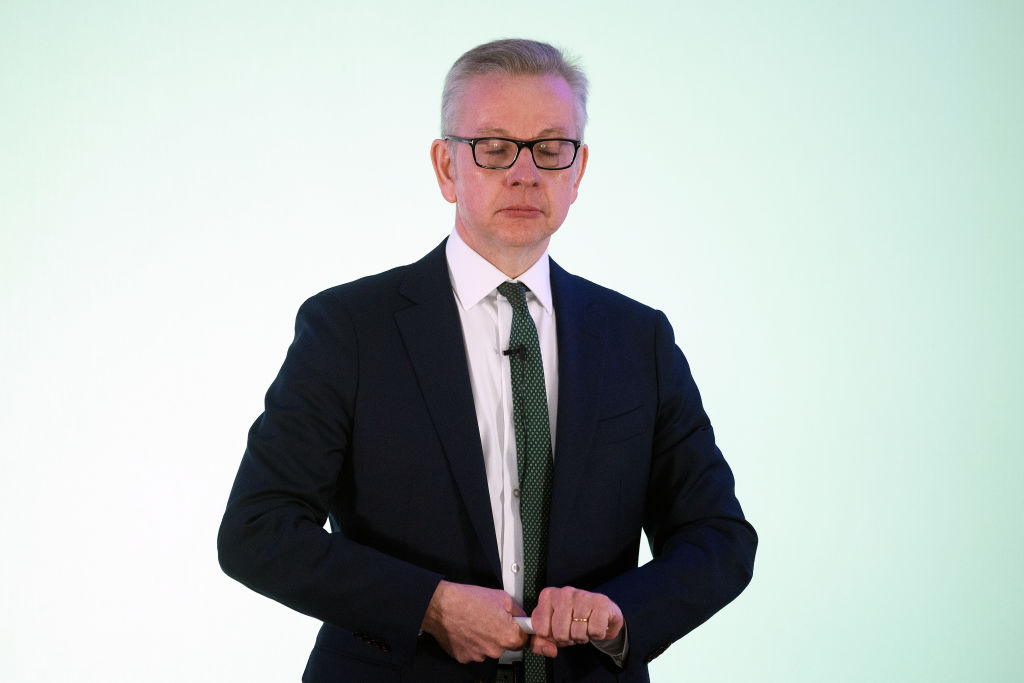When I read about Michael Gove’s plans to abolish VAT and replace it with a US-style Sales Tax, I thought: “Is he on drugs?” Gove’s views on experts have often been misrepresented. His infamous attack was aimed at a subset who haven’t been held accountable for failed predictions, not on the very idea of expertise. In fact, his scepticism of over-confident forecasts was influenced by the research of Prof Philip Tetlock, an expert on forecasting.
Yet, while he isn’t the post-truth, anti-expert that his opponents paint him as, he happens to be promoting a policy opposed near-universally by tax experts. It is not often the head of Tax Justice UK and the former executive director of the Adam Smith Institute see eye-to-eye, but they agree on this.
In theory, VAT should be economically identical to a well-functioning retail sales tax. They are both taxes on final consumption. But when administered in reality, retail sales taxes are harder to enforce. Most countries find that when tax rates go above ten per cent, compliance rates collapse.
The key difference between the two systems is cross-reporting. Under VAT, when business A sells to business B, they send over an invoice stating the amount of tax charged. If business B then sells the good on again, say to business C, they too send over an invoice with the amount of VAT charged. As VAT is a tax on value-added, business B is able to credit the tax charged by business A against the tax they charged to business C.
At first glance, a US-style sales tax is much simpler. The tax is only charged at the final point of sale. In theory, only the final consumer should pay and resellers are exempt. It is easy to see why the Environment Secretary might think swapping a VAT for a retail sales tax would reduce the burden on business.
But in practice, retail sales taxes aren’t so simple. Businesses have to pay the tax unless they can prove the item was bought to sell on to a customer. But resale exemptions are often limited; it’s not always clear whether someone is a consumer (and therefore should pay the tax), or a business (and therefore shouldn’t pay the tax). If a reseller is wrongly identified as a consumer, then the tax can build up over multiple stages of production. The final consumer ends up paying way more than they were meant to.
Rather than reducing the bureaucratic burden on small businesses, this would give bigger businesses, who have brought their suppliers in-house, an unfair advantage.
The key advantage of VAT is compliance. Retail sales taxes are reliant on the final retailer staying honest. Unlike VAT, where businesses are incentivised to report transaction in order to avoid being overcharged, there is no natural audit trail. The higher the rate the greater the incentive for retailers, especially smaller retailers, to misreport. International experience suggests anything above ten per cent is doomed to fail. As Conservatives know, incentives matter.
The clear advantages mentioned above are why over 160 countries across the world have opted for VAT. To be fair to Gove, VAT abolition isn’t unprecedented – Zambia did it last year.
All of this does prompt the question, why doesn’t the US have VAT? The answer is politics, not economics. As an American tax expert once told me “Republicans oppose it because it’s a huge revenue raiser. Democrats oppose it because it’s regressive. As soon as they realise the other side is right it will happen.”
In the US, conservatives and libertarians tend to oppose VAT precisely because it’s a well-designed tax. It’d be hard to finance a European welfare-state without it. That’s why Grover Norquist once tweeted ‘VAT is a French word for big government’.
Republicans like Grover subscribe to the ‘starve the beast’ theory. The idea that you can limit government spending by cutting taxes.
Recent history suggests the theory is bunk. In the US, tax cuts haven’t lead to public sector austerity, but record peacetime deficits. VAT currently raises £137bn a year. If we were to replace it with a US-style sales tax set at ten per cent (remember any higher and tax evasion will skyrocket), the Treasury would face a shortfall of at least £68bn, before the inevitable added tax evasion is factored in.
Michael Gove is then faced with a choice. Either cut spending by £68bn per year – the equivalent of scrapping one HS2-sized project every year. Allow the UK’s budget deficit to balloon to nearly three times its current size. Or hike taxes on individuals and businesses to make up the shortfall.
You can’t help but think this is a mistake that he will come to regret.
Sam Dumitriu is research director of the Entrepreneurs Network






Comments